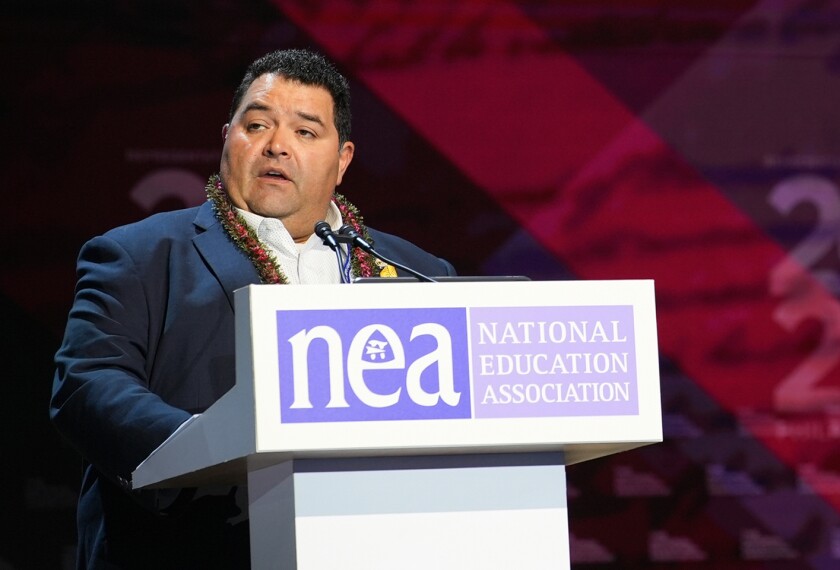Staff members for the nation’s largest teachers’ union will be locked out of work until a contract is reached, after their work stoppage ended the union’s largest event of the year in Philadelphia.
The National Education Association informed its staff union of the decision on July 7, a spokesperson said. Nearly 300 staff members working at the union’s headquarters in Washington will be affected by the lockout. They will not be paid, and won’t work, until they reach agreement on a contract. The staff organization’s contract ended May 31.
The decision comes after the National Education Association Staff Organization’s three day strike ended the NEA’s annual representative assembly one day after it got under way. The representative assembly, held for four days over the Fourth of July weekend, brings together thousands of educators from across the country to vote on the union’s priorities, budget, and strategic plan for the year ahead.
Tensions have been steadily increasing between the NEA and its staff union. NEA staff walked off the job for the first time in 50 years in June over what they said were unfair labor practices.
In a statement, the NEA criticized staff for “abandoning thousands of NEA members from across the country who traveled to the representative assembly, many at their own personal expense, and depriving them of the opportunity to convene and deliberate the business of the union.”
“As NEA members and students across the country prepare to go back to school, we cannot allow NEASO to continue disrupting the work of our members through intermittent, unprotected strikes” under the National Labor Relations Act, a spokesperson said in an email.
The staff organization has filed three unfair labor practice charges with the National Labor Relations Board, citing unilateral workplace changes in retaliation and denial of holiday pay.
NEA officials contest those charges, and said that they believe the strikes are related to contract negotiations. Key sticking points include wages—the two sides are more than $10 million apart, the union said—and telework.
The representative assembly has only been canceled three other times since it began more than a century ago due to war and the COVID-19 pandemic. President Joe Biden, the union’s choice for the November presidential election, was expected to address delegates but canceled, citing his refusal to cross the picket line.
Disclaimer: The copyright of this article belongs to the original author. Reposting this article is solely for the purpose of information dissemination and does not constitute any investment advice. If there is any infringement, please contact us immediately. We will make corrections or deletions as necessary. Thank you.






